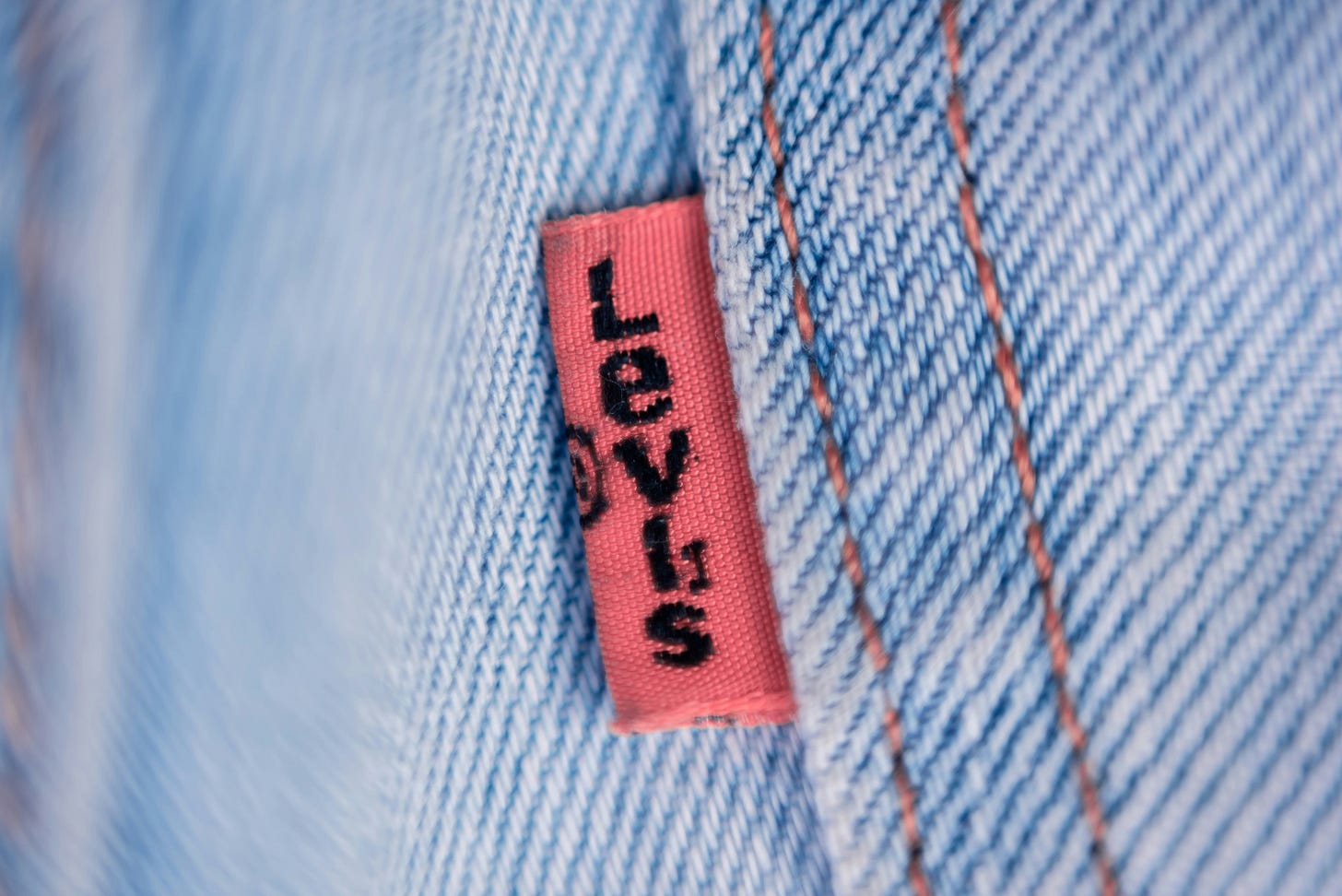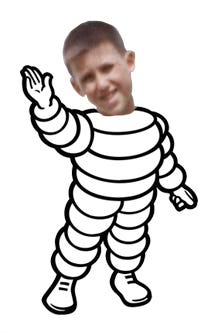His Mother Watched As He Tried On Jeans
This was not going to end well for him.
More mommy issues. If his mother could have put a red light on the roof of the car, she would have. If she had had a siren, she would have turned it on. She sped south down Green Bay Road faster than any ambulance he had ever seen. She flew through the lights at Roger Williams and Lake Cook Road. Fired past North School in Glencoe and roared through the light at Park Avenue. Just two miles to go.
Hubbard Woods was a blur. A hard left at Tower and Green Bay. Another hard right back onto Green Bay. A quarter mile to go. He held on for dear life. She crossed over the oncoming traffic lane to buffet her hard right turn into the driveway, throwing him against the passenger door.
Normally, she would have parked in a parking space. Not this time. The station wagon with the wood side paneling skidded to a stop ten feet from the office of his pediatrician’s office, Eisenberg and Siegel.
He knew this emergency doctor appointment was not going to end well for him. He knew for sure. Less than 30 minutes earlier, he was trying on Levi jeans in his bedroom while his mother watched. Yes, she had picked up the jeans at Fell’s department store in downtown Highland Park.
Unlike his sisters, he wasn’t a shopper. He didn’t like spending time in department stores. He just wasn’t constitutionally suited. If he had his druthers, he would be in and out of these stores in a flash. That’s just not how it goes.
To this day, he finds these stores so damn overwhelming. He gets disoriented in the minutiae of designer names and the inconsistencies of sizes that force him to take two armloads into a dressing room, which only exacerbates his anxiety. The dressing rooms with their harsh lights and funhouse mirrors. So often, he has stumbled out of one of these stores empty-handed, exhausted and disoriented.
Yet, clothes were important to him. He was 13, and, by now, had accepted that he would not be in the inner circle, the residence of the popular kids. Paradoxically, he didn’t even like the kids in the inner circle. Why would he? They shunned him unless forced to make contact in a crowded staircase and would reflexively jerk away as if they had touched dog shit. Still, he wanted to be among them, and he thought clothes might be the ticket.
In seventh grade, when they wore zip-up velours he did, too. When they wore dickeys, same for him. Of course, it made no difference because he was invisible. But not to his real friends who he was sure had the same social aspirations. Unlike him, his friends didn’t get sucked into the velours and dickeys. On days that he did, they gave him so much shit. Those days were unbearable.
Everyone wore jeans. At camp, one of the cool kids who surprisingly didn’t own a pair, borrowed his for the camp dances. In one of the social highlights of his life, the prettiest girl at camp sent him a pony express letter asking him to be her steady, which included dancing exclusively at the weekly social.
That he did every week for the remainder of camp, wearing his reclaimed treasured jeans.
So why was his mother sitting on his bed watching him try on jeans that day? What was her deal? What was his? At the time, that wasn’t the pressing issue.
No matter how hard he tried, either he couldn’t button any of the new jeans, or a solid roll of skin spilled over his hips if he could. These mysterious rolls became of such grave concern to his mother that she risked their lives hightailing it to the pediatrician to find out what the hell was going on. He knew. In a matter of months, his summer sleekness had given away to emerging chubbiness.
Dr. Siegel, who damn well knew what was going on, didn’t want to disappoint his mother. He gave him a full checkup. Oh, he did not spend much time on the rolls bulging along his hips. Perhaps that was to spare his feelings. He was alone on the exam table listening to Dr. Siegel explicate the situation to his mother. The doctor described a condition he had never heard before and that would remain in his consciousness, like, forever. Her dearest son was diagnosed with “love handles.” There was silence. Then palpable relief. Soon, gales of laughter coming from his mother.
His mother drove the speed limit on the way home. Her mood was bright. He seethed. He certainly didn’t know what the future held. He didn’t know that his mother would tell all her friends and relatives the hilarious story about his love handles and that the story would spread to his friends. He didn’t know how he would be tortured by those love handles.
Then, there was the impracticality of them. Should his pants be worn high or low? Or should he size up? They certainly couldn’t be seen in the flesh. The efforts he would go to make sure they were only visible to his naked eye. That was a lost cause. In gym, they played basketball shirts and skins. Changing clothes at sleepovers in front of friends. Swimming! Wherever he would go, those love handles would go with him.
He thought for sure those love handles would be the bane of his existence for the rest of life. He also didn’t know that, in the next 12 months, he would sprout seven inches, those love handles would melt away, and he would move on to other worries that were equal if not greater.
This is what he did that day when he got home. He went straight to the soda bar in the basement and took out a tall soda glass - the kind found at old-fashioned ice cream shops. He opened the freezer and perused the three gallon-sized containers of Baskin-Robbins ice cream. He scooped out three massive scoops of chocolate chip and deposited them into the soda glass. He pumped several shots of root beer syrup into the glass, placed it beneath the seltzer dispenser and filled it to the brim.
He waited for the bubbles to disburse and added more seltzer until the glass was full but not too full that he couldn’t ever-so-carefully situate himself in his favorite nook on the family room couch. As he drank the soda with a straw and ate the melting ice cream with a long fine spoon, his seething slowly subsided and gave way to so, so many daring thoughts about what he could do about his mommy problem.
A footnote: As best as he can recall, his father never said a mean word to him. One day, his father inadvertently hurt him by pointing out that his tennis shorts looked ridiculously tight.
A few months later, he did something he himself had never done- he tried to hurt his father’s feelings. He came into the house and saw his father standing with his mother. He looked at his father, all five-feet-seven of him, his hair now sparse from the chemo.
Out of his mouth came words so unlike him, he immediately regretted it. He said to his father, ‘“Hello, fatso.” He saw the hurt in his father’s eyes. What he didn’t see was his mother charging toward him.
Soon, he was cowering on his bed covered with pillows as his mother was swinging wildly at him and shouting, “You can’t talk to your father that way!” His mother was a legendary spanker. When she went on the attack, he and his sisters ran to their rooms and girded themselves with books in their underwear. This day was different. As she wailed away, tears ran down her cheeks.
Do You Know This Man?: An Irreverent Memoir, is an ongoing exploration of the one character who eludes, confounds and mystifies. Me. Right now, it’s available for free, including being able to listen to some of my plays and dive into the best of Sportscape Magazine.
Current premium content available for free:
Listen to the original cast recordings of Persistence of Vision and Tops or Bottoms.
Watch a complete performance of Botanic Garden.
That’s the scoop!




